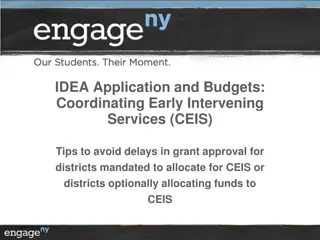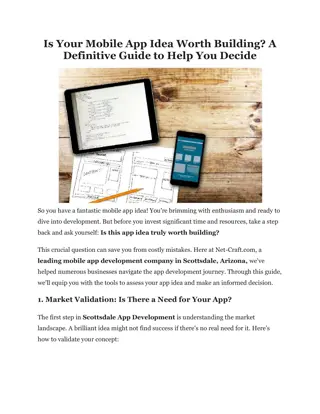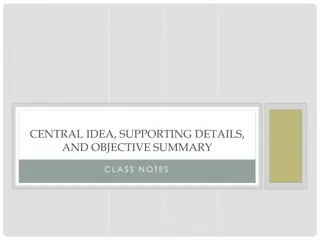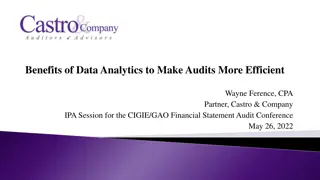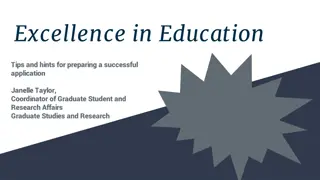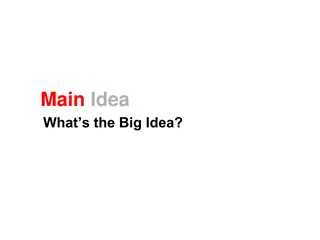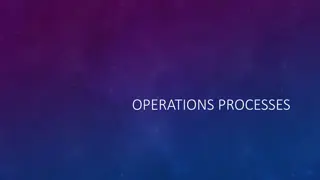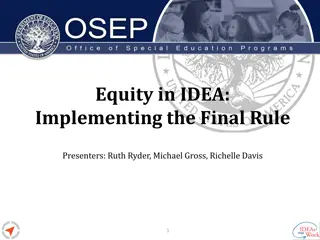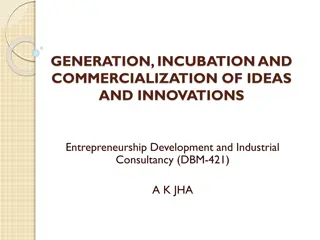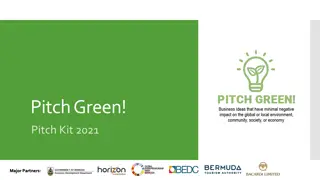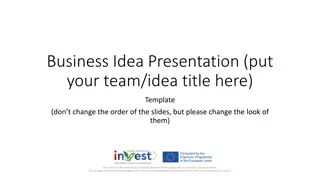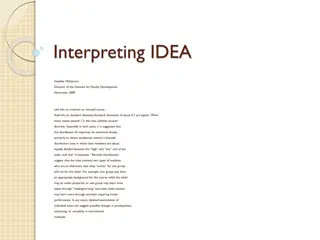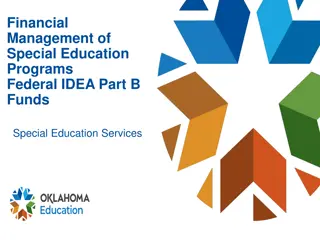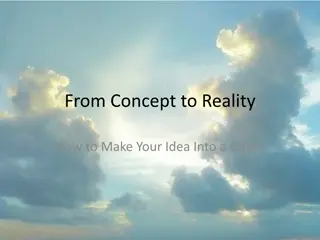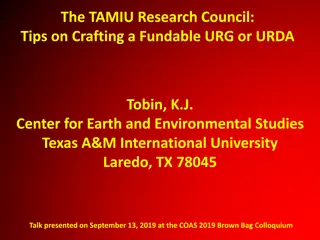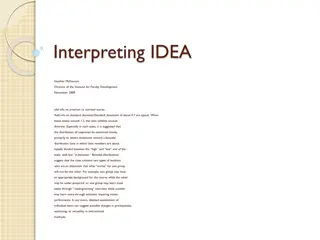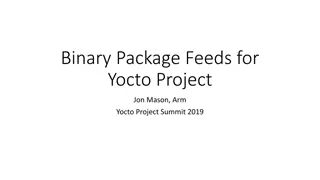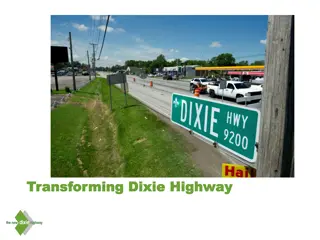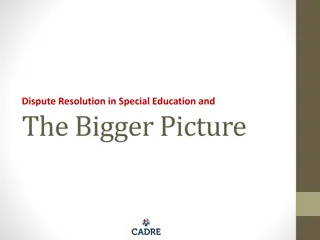Transforming a Great Idea into a Fundable Project
Learn the process of transforming your idea into a successful project ready for funding. Understand the importance of clear project goals, effective planning, and aligning with funding priorities. Develop impactful solutions to community challenges and define project objectives to achieve your goals. Utilize literature reviews to strengthen your project plan and increase its chances of securing funding.
Download Presentation

Please find below an Image/Link to download the presentation.
The content on the website is provided AS IS for your information and personal use only. It may not be sold, licensed, or shared on other websites without obtaining consent from the author.If you encounter any issues during the download, it is possible that the publisher has removed the file from their server.
You are allowed to download the files provided on this website for personal or commercial use, subject to the condition that they are used lawfully. All files are the property of their respective owners.
The content on the website is provided AS IS for your information and personal use only. It may not be sold, licensed, or shared on other websites without obtaining consent from the author.
E N D
Presentation Transcript
THE BIG IDEA Transforming a Great Idea to a Fundable Project
MODULE 1 FOCUS
PLAN Successful grant writing starts with a great idea. Use that idea to develop your project goals and devote ample time to planning your project. Why? Clear goals will help you define the project and determine what resources are needed to conduct the research effectively. Knowing your goals and resource needs will focus your search for funding. The better the fit between your goals and the funding agency s priorities, the more likely your proposal will be funded.
DEVELOP AN IDEA Your idea may be the solution to the tough issues affecting your community or society as a whole. What impact do you want to make? Solve a specific problem Challenge an existing paradigm Address a barrier to progress Develop a new program Other
DEFINE THE PROJECT Use these questions as the starting point to define the project. What do you want to accomplish? Why is this relevant to your community, society, etc.? How will you do the work (methods)? How will you measure results (evaluation)? Who can help you do the work? Where will you do the work? When will you do the work (timeline)?
Use your planning information to develop a project goal. Your goal can serve as a guide when you start writing your proposal. GOALS
Objectives provide measurable steps towards achieving the overall goal. Create a few objectives that delineate the specific tasks necessary to achieve the goal. OBJECTIVES
The literature review provides an important perspective on the project and can help: Determine where this project fits within your field Identify current problems, hypotheses, and opportunities Review the program designs of experts in the field Find support to show why your project plan should work. LITERATURE REVIEW
DETERMINE PROJECT NEEDS Use these questions as the starting point to define the project. Personnel: Are you working alone? How much time is needed? Supplies: What materials and supplies are needed to do the work? Equipment: Do you need specialized equipment? Facilities: What workspace is needed? Travel: What travel is needed to do the work or disseminate results? Partners: Do you need specific expertise or access to resources?
FIND FUNDS Finding the needed funds can be challenging. A variety of agencies and organizations provide grant opportunities throughout the year. Federal Departments and Agencies State and Local Governments Corporate Foundations Nonprofit Foundations Professional Organizations
Search engines provide grant information from various sources such as: SEARCH ENGINES Grants.Gov www.Grants.gov
Good key words related to your project will help narrow your search. KEY WORDS
Once you identify a potential funding source, read the guidelines carefully to make sure project goals align with the funding priorities. Guidelines inform you about due dates, eligibility and submission requirements. GUIDELINES
THE BIG IDEA You have completed the foundation for writing the proposal.




